Voluntary Exchange Quotes & Sayings
Enjoy reading and share 19 famous quotes about Voluntary Exchange with everyone.
Top Voluntary Exchange Quotes
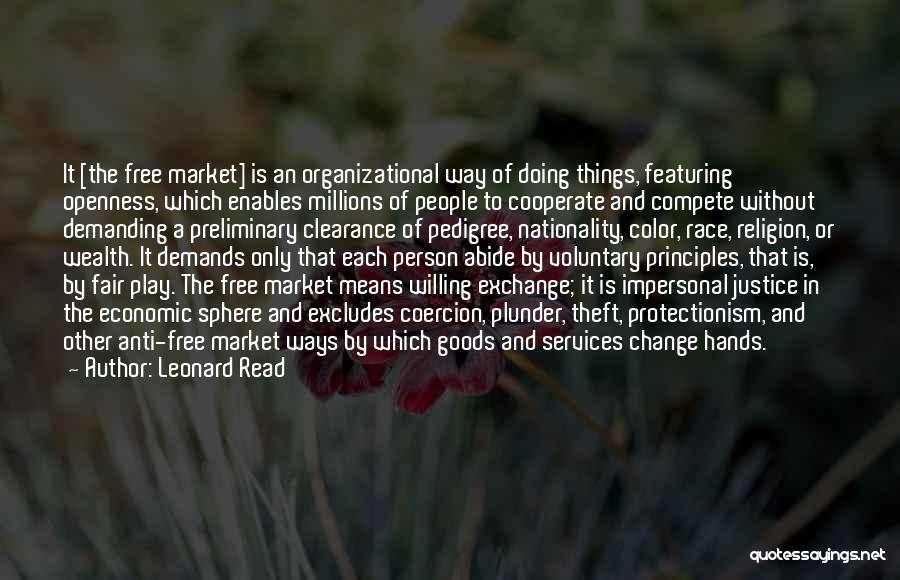
It [the free market] is an organizational way of doing things, featuring openness, which enables millions of people to cooperate and compete without demanding a preliminary clearance of pedigree, nationality, color, race, religion, or wealth. It demands only that each person abide by voluntary principles, that is, by fair play. The free market means willing exchange; it is impersonal justice in the economic sphere and excludes coercion, plunder, theft, protectionism, and other anti-free market ways by which goods and services change hands. — Leonard Read
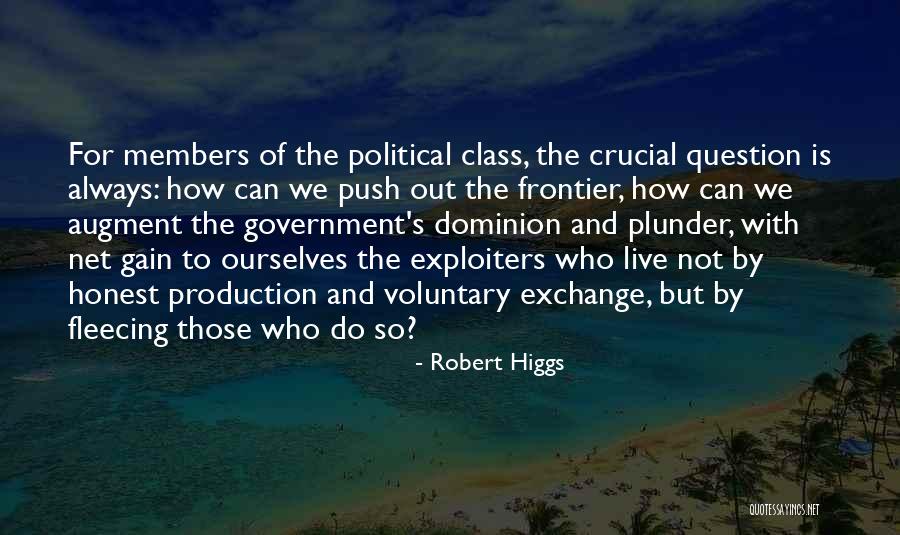
For members of the political class, the crucial question is always: how can we push out the frontier, how can we augment the government's dominion and plunder, with net gain to ourselves the exploiters who live not by honest production and voluntary exchange, but by fleecing those who do so? — Robert Higgs
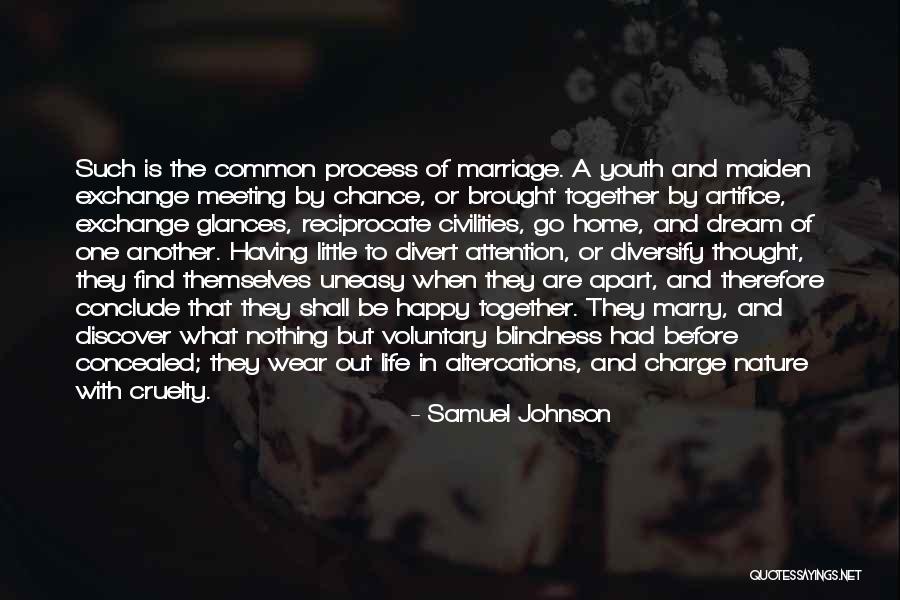
Such is the common process of marriage. A youth and maiden exchange meeting by chance, or brought together by artifice, exchange glances, reciprocate civilities, go home, and dream of one another. Having little to divert attention, or diversify thought, they find themselves uneasy when they are apart, and therefore conclude that they shall be happy together. They marry, and discover what nothing but voluntary blindness had before concealed; they wear out life in altercations, and charge nature with cruelty. — Samuel Johnson
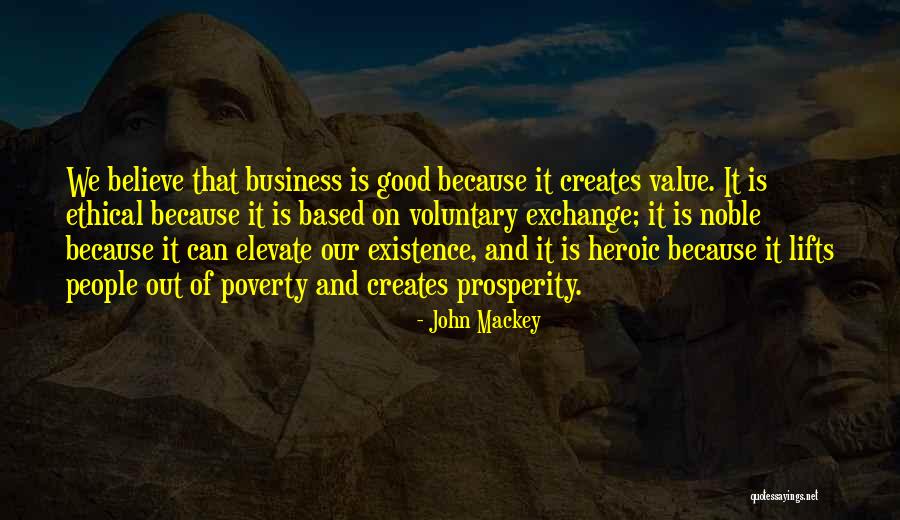
We believe that business is good because it creates value. It is ethical because it is based on voluntary exchange; it is noble because it can elevate our existence, and it is heroic because it lifts people out of poverty and creates prosperity. — John Mackey
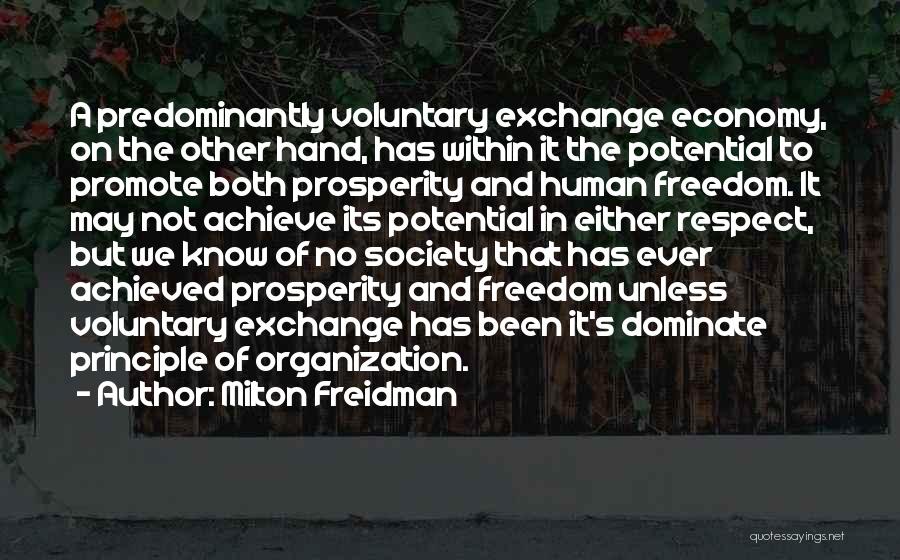
A predominantly voluntary exchange economy, on the other hand, has within it the potential to promote both prosperity and human freedom. It may not achieve its potential in either respect, but we know of no society that has ever achieved prosperity and freedom unless voluntary exchange has been it's dominate principle of organization. — Milton Freidman
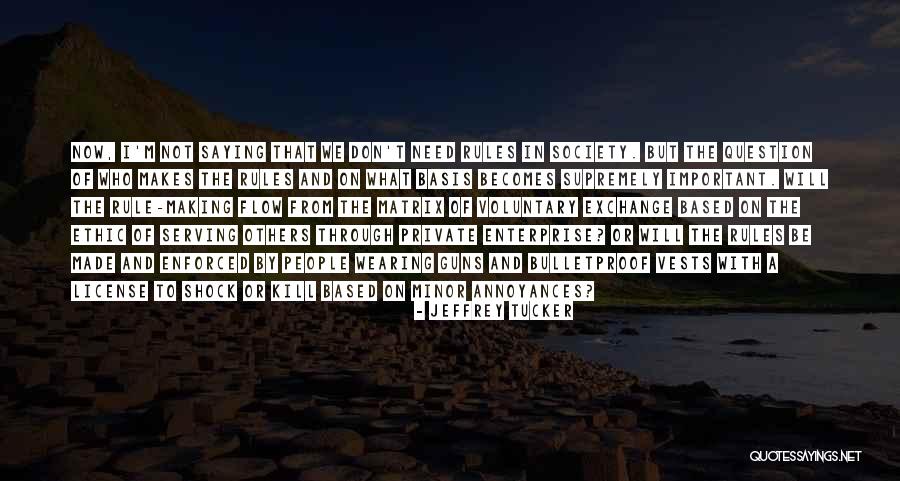
Now, I'm not saying that we don't need rules in society. But the question of who makes the rules and on what basis becomes supremely important. Will the rule-making flow from the matrix of voluntary exchange based on the ethic of serving others through private enterprise? Or will the rules be made and enforced by people wearing guns and bulletproof vests with a license to shock or kill based on minor annoyances? — Jeffrey Tucker
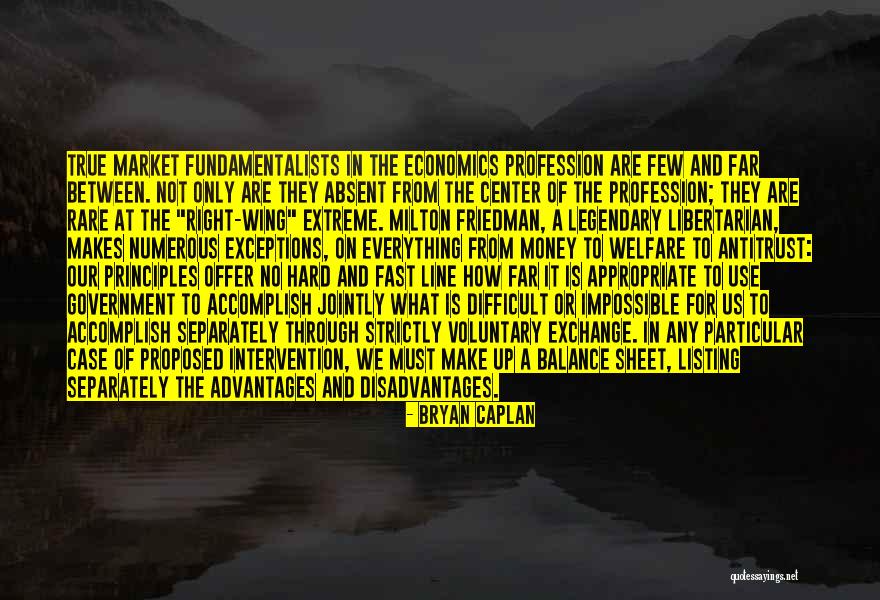
True market fundamentalists in the economics profession are few and far between. Not only are they absent from the center of the profession; they are rare at the "right-wing" extreme. Milton Friedman, a legendary libertarian, makes numerous exceptions, on everything from money to welfare to antitrust: Our principles offer no hard and fast line how far it is appropriate to use government to accomplish jointly what is difficult or impossible for us to accomplish separately through strictly voluntary exchange. In any particular case of proposed intervention, we must make up a balance sheet, listing separately the advantages and disadvantages. — Bryan Caplan
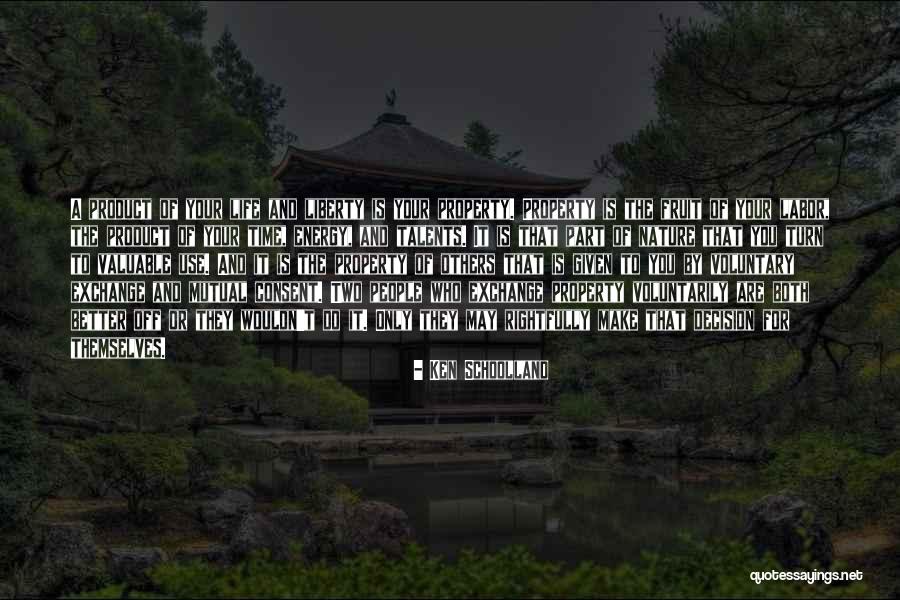
A product of your life and liberty is your property. Property is the fruit of your labor, the product of your time, energy, and talents. It is that part of nature that you turn to valuable use. And it is the property of others that is given to you by voluntary exchange and mutual consent. Two people who exchange property voluntarily are both better off or they wouldn't do it. Only they may rightfully make that decision for themselves. — Ken Schoolland
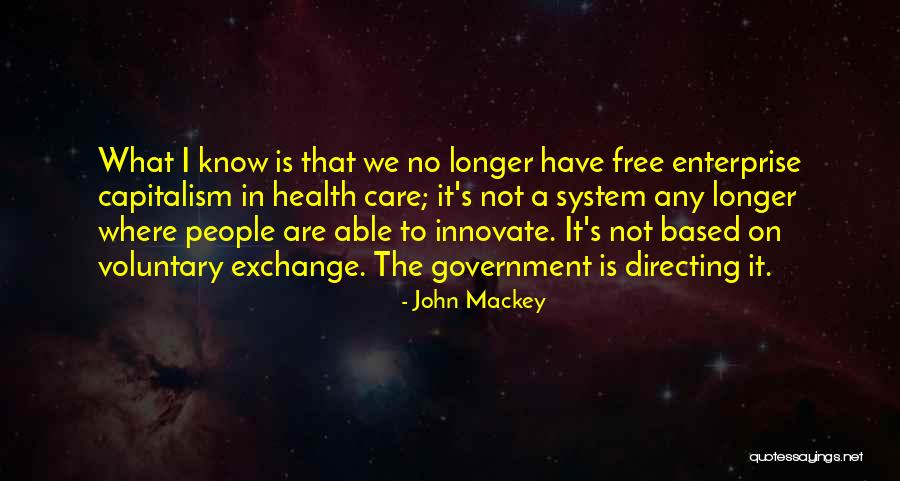
What I know is that we no longer have free enterprise capitalism in health care; it's not a system any longer where people are able to innovate. It's not based on voluntary exchange. The government is directing it. — John Mackey
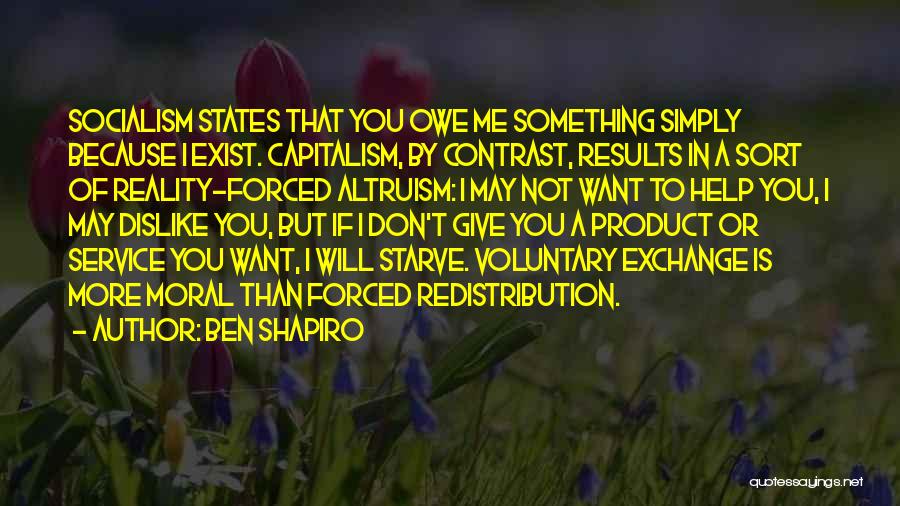
Socialism states that you owe me something simply because I exist. Capitalism, by contrast, results in a sort of reality-forced altruism: I may not want to help you, I may dislike you, but if I don't give you a product or service you want, I will starve. Voluntary exchange is more moral than forced redistribution. — Ben Shapiro

Saying that government is not the way to solve problems is not saying that humanity cannot solve its problems. What I've finally learned is this: Despite the obstacles created by governments, voluntary networks of private individuals - through voluntary exchange - solve all sorts of challenges. — John Stossel
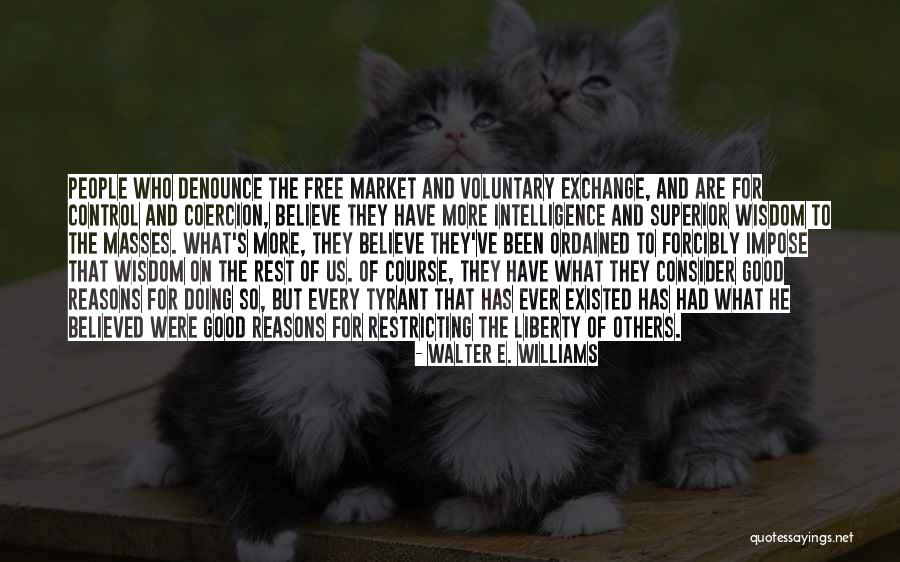
People who denounce the free market and voluntary exchange, and are for control and coercion, believe they have more intelligence and superior wisdom to the masses. What's more, they believe they've been ordained to forcibly impose that wisdom on the rest of us. Of course, they have what they consider good reasons for doing so, but every tyrant that has ever existed has had what he believed were good reasons for restricting the liberty of others. — Walter E. Williams
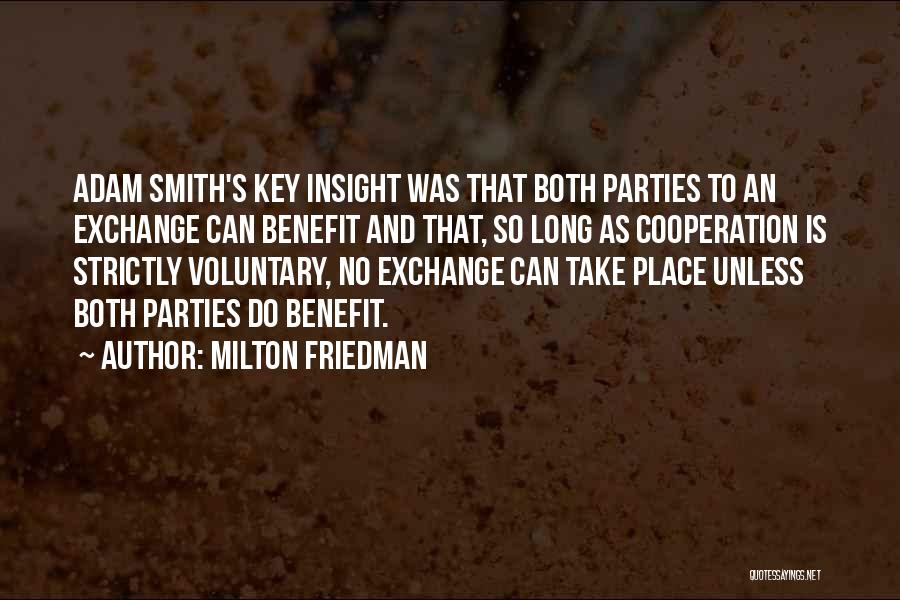
Adam Smith's key insight was that both parties to an exchange can benefit and that, so long as cooperation is strictly voluntary, no exchange can take place unless both parties do benefit. — Milton Friedman
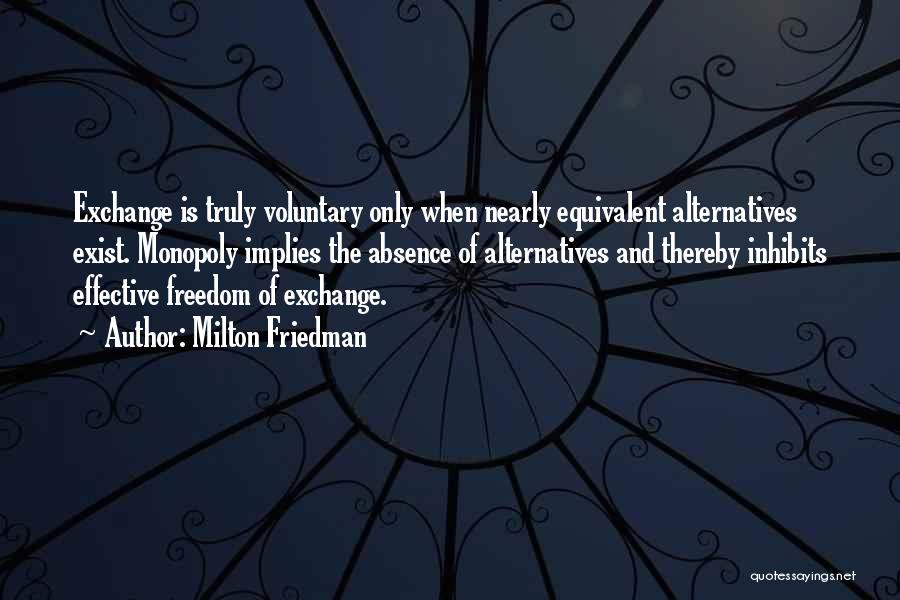
Exchange is truly voluntary only when nearly equivalent alternatives exist. Monopoly implies the absence of alternatives and thereby inhibits effective freedom of exchange. — Milton Friedman

The key insight of Adam Smith's Wealth of Nations is misleadingly simple: if an exchange between two parties is voluntary, it will not take place unless both believe they will benefit from it. Most economic fallacies derive from the neglect of this simple insight, from the tendency to assume that there is a fixed pie, that one party can gain only at the expense of another. — Milton Friedman
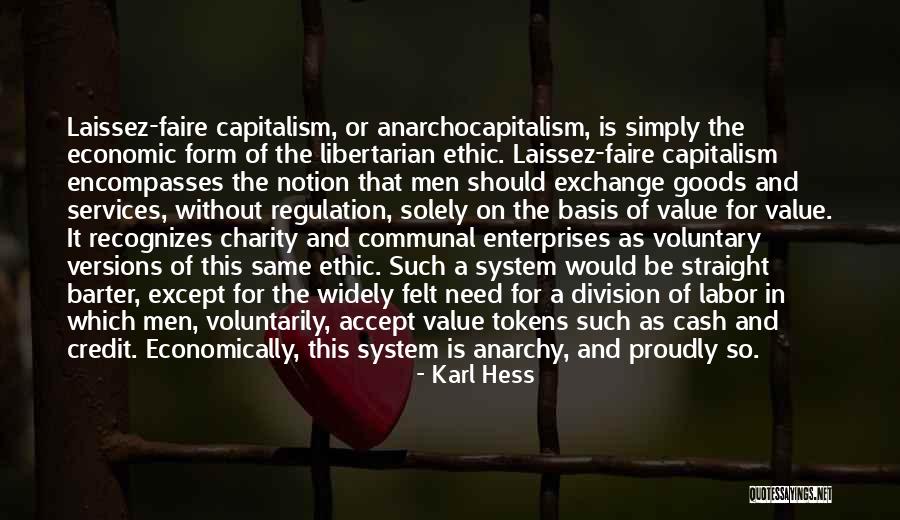
Laissez-faire capitalism, or anarchocapitalism, is simply the economic form of the libertarian ethic. Laissez-faire capitalism encompasses the notion that men should exchange goods and services, without regulation, solely on the basis of value for value. It recognizes charity and communal enterprises as voluntary versions of this same ethic. Such a system would be straight barter, except for the widely felt need for a division of labor in which men, voluntarily, accept value tokens such as cash and credit. Economically, this system is anarchy, and proudly so. — Karl Hess
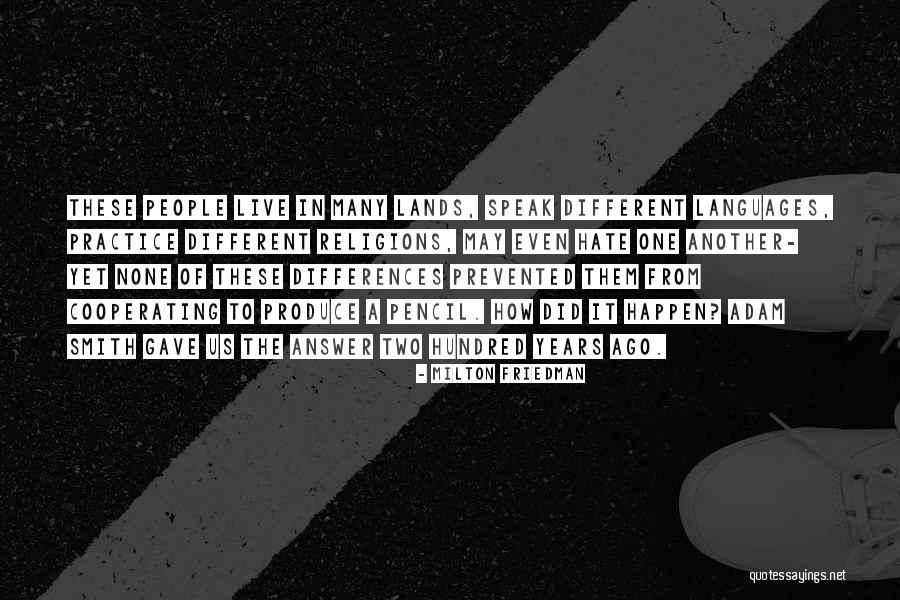
These people live in many lands, speak different languages, practice different religions, may even hate one another- yet none of these differences prevented them from cooperating to produce a pencil. How did it happen? Adam Smith gave us the answer two hundred years ago. — Milton Friedman
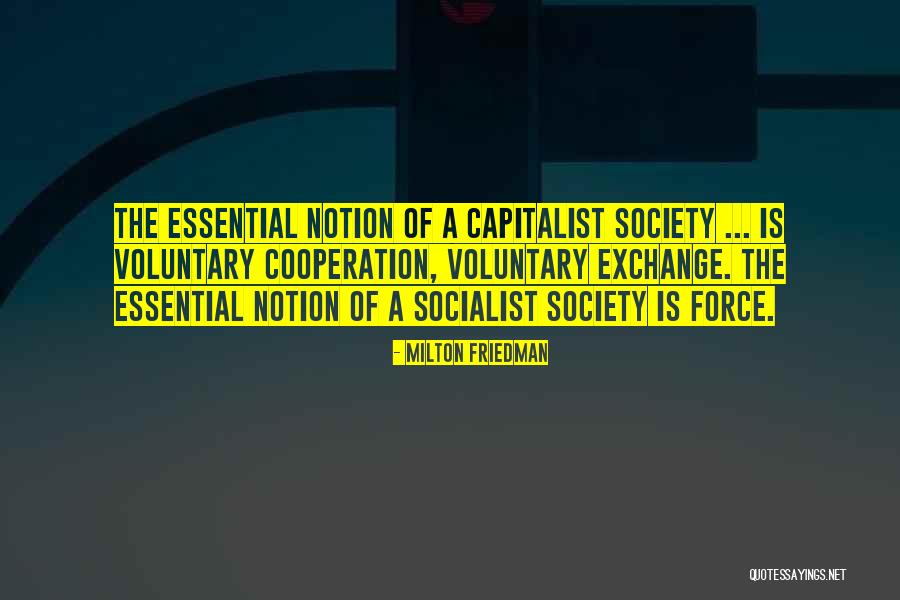
The essential notion of a capitalist society ... is voluntary cooperation, voluntary exchange. The essential notion of a socialist society is force. — Milton Friedman
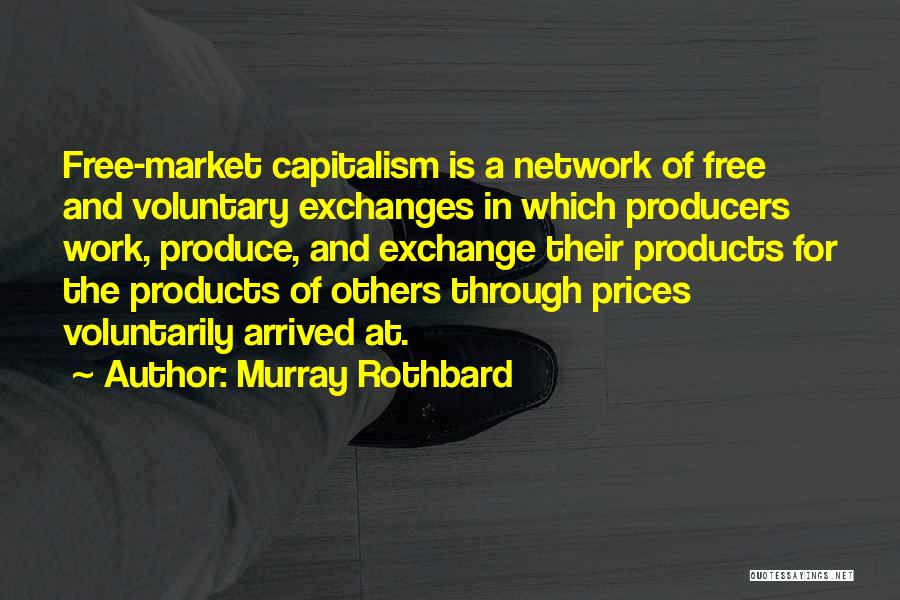
Free-market capitalism is a network of free and voluntary exchanges in which producers work, produce, and exchange their products for the products of others through prices voluntarily arrived at. — Murray Rothbard





